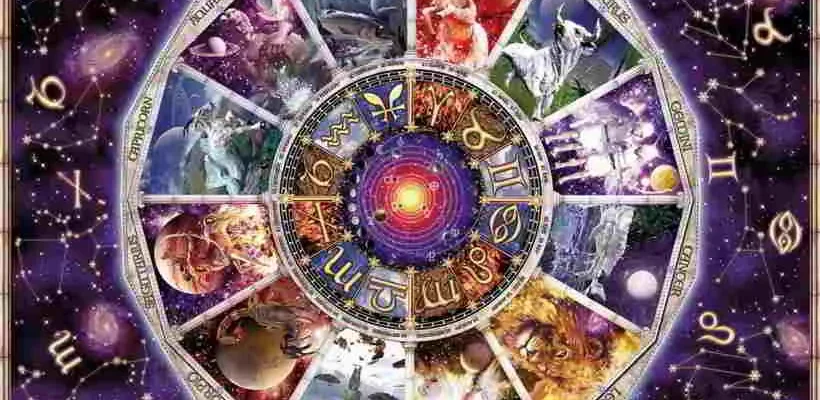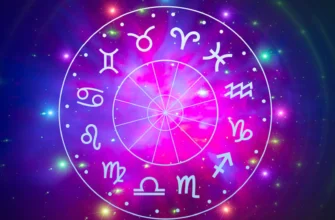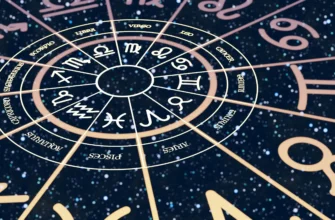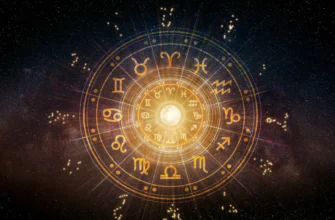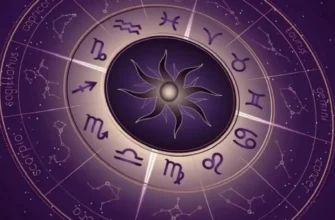Mars opposition Uranus in synastry introduces electrifying intensity that can feel thrilling, unpredictable, and occasionally explosive. In synastry chart meaning, this aspect symbolizes the clash between direct action (Mars) and sudden disruption or freedom impulses (Uranus).
The attraction is immediate, magnetic, and charged with adrenaline — but so is the potential for conflict. When partners check an advanced synastry chart calculator, this aspect often appears as a “wild card” that brings excitement but challenges stability. In relationship synastry, Mars wants pursuit and passion, while Uranus resists confinement and demands space. This creates a dynamic where the rhythm of the relationship swings between closeness and sudden distance.
A synastry chart compatibility report usually describes this opposition as highly sexual but emotionally volatile. If both partners embrace change and allow flexibility, the connection can be exhilarating. If not, the relationship may feel like constant emotional lightning.
Mars represents direct action, anger, aggression, physical force, sexual drive, competitive instinct, and the capacity to assert oneself through confrontation and combat in the Birth Chart. Uranus embodies sudden disruption, unpredictable rebellion, shocking behavior, rejection of constraint, erratic energy, and the principle of breaking free from any force attempting control or limitation through unexpected, often violent, liberation. When these planets oppose each other across the 180-degree angle – the aspect of maximum tension and irreconcilable polarity – Mars’s aggressive attempts at assertion, conquest, or control crash directly into Uranus’s absolutely uncontrollable rebellion, shocking disruption, and violent rejection of Mars’s attempts to dominate, predict, or constrain.
The opposition, as astrology’s aspect of polarity and projection, creates relationship where Mars finds Uranus “unpredictable and unreliable” – impossible to control, manage, or even understand through Mars’s direct action framework. Uranus perceives Mars as “short-tempered, rude, and inconsiderate” – using crude force and aggressive dominance attempts that trigger Uranus’s rebellious nature and provoke shocking retaliatory responses Mars never anticipated because Uranus operates through completely different logic than Mars’s straightforward aggression and competitive conquest orientation.
The Fundamental Incompatibility: Living Together Proves Impossible
Mars opposition Uranus’s most immediate and undeniable characteristic involves complete unsuitability for cohabitation – these two people simply cannot live together without triggering constant violent conflicts, dangerous situations, or establishing separate schedules preventing them from occupying shared space simultaneously. The aspect creates such intense mutual triggering and explosive reactivity that sustained proximity becomes psychologically and potentially physically dangerous for both parties.
Mars will resist Uranus’s self-righteousness – Uranus’s belief that their unconventional methods, shocking behaviors, and complete rejection of Mars’s authority or conventional approaches constitute superior orientation toward reality and freedom. Mars perceives this Uranian self-righteousness as arrogant disregard for legitimate authority, practical reality, and social conventions that exist for good reasons Uranus foolishly or maliciously ignores. Mars retaliates aggressively when Uranus demonstrates this attitude – not through patient discussion but through angry confrontation, aggressive assertion of authority, or attempts to force Uranus into compliance through intimidation or direct physical dominance.
Uranus responds to Mars’s aggressive retaliation not through submission or negotiation but through shocking disruption, unpredictable rebellion, and sudden violent rejection of Mars’s domination attempts. Uranus might physically leave without warning, create deliberately shocking incidents designed to upset Mars’s plans or control attempts, engage in behavior specifically calculated to enrage Mars while remaining beyond Mars’s capacity to control or punish, or simply refuse cooperation in ways Mars cannot predict or prevent through normal aggression and assertion strategies.
This creates escalating cycle: Mars attempts control or dominance using direct aggressive methods; Uranus rebels through shocking unpredictable disruption; Mars becomes more enraged and aggressive in response to Uranus’s defiance; Uranus escalates rebellion and disruption in response to Mars’s increased aggression. Neither person can successfully dominate or control the other – Mars’s aggression only intensifies Uranus’s rebellion, while Uranus’s disruption only intensifies Mars’s rage. The relationship becomes constant battleground where both people remain perpetually activated, reactive, and unable to achieve peace, cooperation, or mutual respect despite potentially sharing children, property, or other practical connections making complete separation difficult.
When examining astrological signs compatibility for cohabitation viability, Mars opposition Uranus indicates living together should absolutely be avoided – if relationship must continue due to practical obligations or genuine affection despite this aspect, both people must maintain separate residences or at minimum establish schedules preventing simultaneous presence in shared spaces, allowing both to avoid constant triggering producing explosive conflicts whenever they occupy same physical territory.
Parent-Child Dynamics: Rebellion and Perceived Parental Failure
Mars opposition Uranus manifests distinctly depending on which person occupies parental versus child position: when parent’s Mars opposes child’s Uranus, the child proves “likely to disobey parent’s requests” – not through typical childhood resistance or testing boundaries but through Uranian complete rejection of parental authority, shocking disregard for rules and expectations, and unpredictable rebellious behavior parent cannot control, predict, or understand through normal parenting strategies. The parent perceives child as “rebellious and disobedient” – fundamentally oppositional, deliberately provocative, and impossible to manage through typical discipline or authoritative guidance.
The parent’s Mars responds to child’s Uranian rebellion with increased aggression – stricter rules, harsher punishments, more forceful attempts to impose control and obedience. However, these aggressive parenting tactics only intensify child’s rebellion, making Uranus more determined to escape control, more shocking in disruptive behaviors, and more alienated from parent whose aggressive approach triggers rather than resolves the opposition’s inherent conflict. The relationship deteriorates into perpetual power struggle where neither can win – parent cannot force compliance from Uranian child, while child cannot escape parent’s authority entirely until reaching legal adulthood allowing physical separation.
Conversely, when child’s Mars opposes parent’s Uranus, the child “will feel that parent has failed in their responsibilities, has not taken care of them, and that parenting style is irresponsible.” The child’s Mars craves strong, reliable, protective parenting – clear boundaries, consistent discipline, dependable presence, and authoritative guidance providing structure and security. Instead, they encounter Uranian parent whose erratic, unpredictable, unconventional parenting style feels to Mars child like abandonment, irresponsibility, or failure to provide basic parental functions Mars needs and expects.
The Mars child becomes angry at Uranus parent – not through typical childhood anger but through deeper rage at perceived betrayal and abandonment. Mars child wants to control or force parent into more conventional, reliable parenting role but cannot – Uranus parent resists child’s demands for predictability and conventional parenting as constraints on their freedom and authentic self-expression. Mars child experiences Uranus parent as selfish adult prioritizing personal freedom over parental responsibility, while Uranus parent experiences Mars child as controlling, conventional, and unable to appreciate the freedom and unconventionality Uranus values.
Both configurations create parent-child relationships characterized by mutual hostility, lack of respect, and inability to meet each other’s fundamental needs – Mars parent cannot control Uranian child; Uranian parent cannot satisfy Mars child’s need for reliable conventional parenting. These relationships typically improve only after child achieves independence allowing physical distance, or not at all if resentments from childhood damage becomes permanent barrier to adult relationship regardless of both people maturing beyond childhood and parenting phases.
Marriage Context: Separate Schedules to Avoid Constant Conflict
Mars opposition Uranus proves “unfavorable for couples spending lot of time together” – not merely inconvenient but actively dangerous, making sustained cohabitation psychologically destructive and potentially physically hazardous. In marital relationships, the 180-degree opposition “is most likely to trigger anger” – constant low-level irritation punctuated by explosive conflicts erupting suddenly when proximity, stress, or simple bad timing activates the aspect’s volatile nature creating situations where both people’s worst qualities emerge simultaneously.
Unlike Mars square Uranus (90-degree aspect) which might maintain sexual attraction despite friction, Mars opposition Uranus “reduces sexual interest for both partners” – the constant conflict, mutual contempt, and explosive anger create environment where sexual intimacy becomes impossible or undesirable for both people. Neither wants physical closeness with someone who triggers such rage and whose behavior seems so incomprehensible, unreliable, or deliberately provocative. The marriage becomes essentially celibate or maintains minimal sexual contact experienced as obligation rather than desire or pleasure.
Many marriages with Mars opposition Uranus continue without divorce – not because both people achieve satisfying partnership but because practical considerations (children, finances, property, social pressure, religious prohibitions) prevent separation despite relationship’s complete emotional and physical bankruptcy. These couples solve proximity problem by “arranging their own schedules and trying to avoid being in same place at same time to avoid arguing whenever they meet.”
This creates bizarre living arrangement resembling roommates more than spouses: each person maintains independent schedule, separate activities, and personal space within shared household. They coordinate to minimize overlap – one works day shift while other works nights; one handles morning childcare while other handles evening; one socializes with friends while other stays home; one travels while other remains local. When forced into simultaneous presence – family dinners, children’s events, necessary household discussions – both people maintain careful emotional distance and surface politeness preventing triggering that would explode into open conflict if they relaxed into authentic interaction.
This arrangement preserves marriage legally and socially while acknowledging that actual partnership, intimacy, or genuine closeness proves impossible given their explosive incompatibility. Both people essentially live separate lives under same roof, maintaining facade of marriage for outside world while privately accepting that avoiding each other constitutes only viable strategy for preventing constant warfare making shared life unbearable for both parties and any children or others affected by their conflicts.
When using relationship chart readings for marriage counseling or partnership assessment, Mars opposition Uranus indicates traditional marriage requiring sustained intimacy and shared daily life proves fundamentally unviable – if marriage must continue, accepting separate schedules and minimal contact as necessary accommodation prevents worse outcomes than futile attempts at creating closeness or conventional partnership this aspect makes impossible.
The Car Example: Confined Spaces Amplify Danger
The document provides fascinatingly specific warning: couples with Mars opposition Uranus “are not suited to driving together. The cramped space of car will exacerbate tension between Mars and Uranus, and may even lead to unexpected accidents.” This illustrates how confined spaces amplify the aspect’s dangerous qualities – when both people cannot physically separate to defuse tension, when proximity remains forced despite mounting irritation, and when one person (driver) controls vehicle while other (passenger) feels trapped, the Mars-Uranus opposition can manifest through actual physical accidents caused by sudden explosive conflicts distracting driver, Uranus passenger doing something shocking or disruptive affecting driver’s control, or simply the hostile energy between them creating circumstances where accidents become more probable.
The warning extends to hired drivers: “if you need to hire driver, it’s best to observe whether either partner has this aspect; if so, you’ll likely experience uneasy atmosphere during ride.” This suggests the aspect’s tension proves palpable even to third parties – the driver senses hostile energy between passengers, feels uncomfortable atmosphere, and potentially experiences distraction or stress affecting driving safety even when not directly involved in the couple’s conflict.
This specific example reveals broader principle: Mars opposition Uranus proves particularly dangerous in any confined space or situation preventing physical separation – small apartments, long car trips, airplane flights, shared hotel rooms, or any contexts forcing sustained proximity without escape options. The aspect requires space, separate territories, and ability to retreat to private areas when tension mounts – without these escape valves, the pressure builds until explosive release through violent conflict, shocking disruption, or actual physical danger as both people’s worst qualities emerge simultaneously within constrained space amplifying rather than containing their mutual hostility.
Practical advice for Mars opposition Uranus couples includes: maintain separate bedrooms allowing retreat from each other’s presence; avoid long trips together in confined vehicles; establish clear territorial boundaries within shared home where each person controls their own space; develop signals or agreements allowing either person to withdraw without explanation when tension begins mounting; and generally structure life to minimize forced proximity while maximizing individual freedom and separate activities preventing constant triggering requiring sustained self-control both people find exhausting and ultimately impossible to maintain across extended periods.
Gender Dynamics: Masculine Energy Conflicts
When man’s Mars opposes woman’s Uranus, “the man may perceive woman as not being feminine and may interact with her in chauvinistic manner, while woman may perceive man as chauvinistic and disrespectful.” The man’s Mars expects conventional femininity – receptivity, compliance, sexual availability, emotional supportiveness, and deference to masculine authority and leadership. Instead, he encounters Uranian woman who completely rejects these conventional feminine roles – asserting independence, refusing control, behaving unpredictably, and shocking him through deliberate violation of gender expectations he considers natural and appropriate.
His Mars response involves “chauvinistic manner” – aggressive assertion of masculine authority, attempts to force her into conventional feminine role through intimidation or contempt, and general disrespect for her autonomy and unconventional approach to femininity. This triggers her Uranus rebellion – she becomes even more determined to resist his control, more shocking in her violations of gender norms, and more contemptuous of his conventional masculine posturing and attempts at dominance she experiences as primitive, crude, and unworthy of respect or compliance.
When woman’s Mars opposes man’s Uranus, “the woman identifies with her masculine energy and feels that man wants to escape her control. Therefore, she tries to use masculine methods to capture and conquer him.” The woman with strong Mars naturally expresses masculine energy – direct action, aggressive pursuit, competitive drive, and desire for control and conquest. She attempts to dominate or capture the Uranian man using these masculine methods – aggressive pursuit, forceful demands, attempts to constrain his freedom or impose her will through direct confrontation.
However, “in all aspects where Mars and Uranus are in 180-degree opposition, Mars’s attempt to conquer Uranus is futile. Uranus always manages to thwart Mars’s desire to conquer.” Regardless of gender distribution, Mars cannot successfully dominate, control, or conquer Uranus – every aggressive attempt at control triggers Uranian rebellion and shocking disruption that defeats Mars’s conquest desires. Uranus remains fundamentally uncontrollable through direct force or aggressive dominance – the more Mars pushes, the more Uranus escapes; the more Mars demands, the more Uranus rebels; the more Mars attacks, the more Uranus disrupts through unpredictable means Mars cannot anticipate or prevent.
This futility proves particularly frustrating for Mars – whose entire identity and life strategy involves direct action, forceful assertion, and successful conquest of obstacles and opponents. Encountering Uranus whose nature makes conquest impossible regardless of Mars’s strength, determination, or aggressive tactics creates profound frustration that intensifies Mars’s rage while simultaneously demonstrating Mars’s complete powerlessness over Uranus despite Mars’s self-concept as powerful, dominant, and capable of forcing compliance through superior force or aggressive persistence.
Conclusion: When Separation Serves Survival
Mars opposition Uranus in synastry ultimately represents one of astrology’s most practically dangerous and psychologically destructive aspects – creating relationships where both people trigger each other’s worst qualities, where proximity produces constant explosive conflicts, and where sustained interaction proves hazardous to both parties’ wellbeing and potentially to their physical safety through accidents, violence, or simply the cumulative psychological damage of living in constant state of anger, reactivity, and defensive vigilance against other person’s unpredictable provocations and shocking disruptions.
The aspect teaches brutal lesson about compatibility limits: some combinations don’t merely create difficulties requiring work – they create genuine incompatibility making successful partnership impossible regardless of love, commitment, good intentions, or efforts at improvement. Mars and Uranus fundamentally cannot coexist peacefully when opposed – their essential natures create automatic conflict where Mars’s aggression triggers Uranus’s rebellion while Uranus’s unpredictability triggers Mars’s rage in endless escalating cycle neither person can break through conscious effort or behavioral modification.
For those discovering Mars opposition Uranus in significant relationships through natal chart interpretation or synastry analysis, the wisest response typically involves accepting that physical separation, minimal contact, and structured distance serve both people’s survival and wellbeing better than attempting conventional close partnership, sustained cohabitation, or traditional relationship roles requiring intimacy, cooperation, and sustained presence in shared spaces. The relationship might maintain legal connection (marriage, family bonds) or emotional affection while acknowledging that actual proximity proves toxic, dangerous, and ultimately untenable for both parties.

